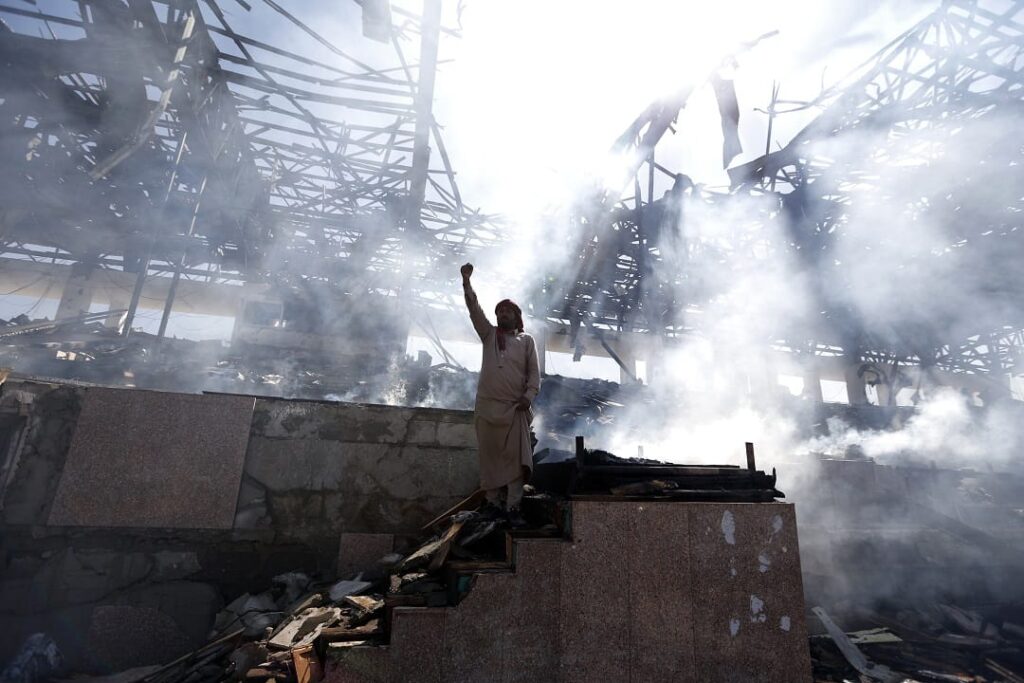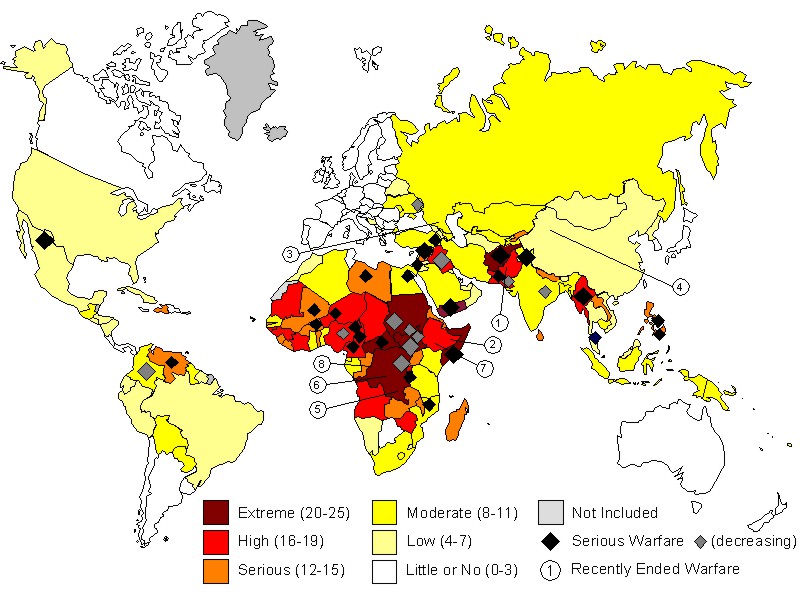Prolonged Political Conflicts And Its Adverse Effects

Protracted political conflicts are a common occurrence in many countries around the world. These conflicts arise when different groups or individuals have differing opinions on how the country should be run, or how resources should be distributed. These conflicts can lead to a range of negative effects on the country, from economic and social instability to violence and war. Let us explore the effects of protracted political conflicts on the country, and why it is essential to find a solution to these conflicts.
 One of the most significant effects of protracted political conflicts is economic instability. When there is political unrest, investors tend to shy away from investing in the country. This lack of investment can lead to a decrease in economic growth and development, as well as a decline in the standard of living for citizens. Additionally, the lack of economic opportunities can lead to an increase in poverty, which can lead to further unrest and conflict. Another effect of protracted political conflicts is social instability. When there is conflict between different groups, it can lead to a breakdown in social cohesion, as people begin to identify more with their group identity than with their identity as citizens of the country. This can lead to an increase in discrimination, xenophobia, and even violence. Moreover, people tend to lose their trust in the government and other institutions, leading to further social instability. Protracted political conflicts can also lead to violence and war. When conflicts between groups are not resolved through peaceful means, they can escalate into violence, and in extreme cases, even civil war. This can have devastating effects on the country, including loss of life, destruction of infrastructure, displacement of people, and a breakdown in the rule of law. Even when conflicts are not violent, they can still lead to a sense of mistrust and bitterness between groups, which can have long-lasting effects on the country’s social fabric.
One of the most significant effects of protracted political conflicts is economic instability. When there is political unrest, investors tend to shy away from investing in the country. This lack of investment can lead to a decrease in economic growth and development, as well as a decline in the standard of living for citizens. Additionally, the lack of economic opportunities can lead to an increase in poverty, which can lead to further unrest and conflict. Another effect of protracted political conflicts is social instability. When there is conflict between different groups, it can lead to a breakdown in social cohesion, as people begin to identify more with their group identity than with their identity as citizens of the country. This can lead to an increase in discrimination, xenophobia, and even violence. Moreover, people tend to lose their trust in the government and other institutions, leading to further social instability. Protracted political conflicts can also lead to violence and war. When conflicts between groups are not resolved through peaceful means, they can escalate into violence, and in extreme cases, even civil war. This can have devastating effects on the country, including loss of life, destruction of infrastructure, displacement of people, and a breakdown in the rule of law. Even when conflicts are not violent, they can still lead to a sense of mistrust and bitterness between groups, which can have long-lasting effects on the country’s social fabric.
Protracted political conflicts can have a range of negative Political conflicts are a common occurrence in many countries, and in some cases, they can become protracted, lasting for extended periods of time. Protracted political conflicts are those that continue for years, if not decades, and are characterized by deep-seated differences and intractable positions held by the parties involved. Such conflicts can have far-reaching effects on the country, including social, economic, and political implications. One of the primary effects of protracted political conflicts is the erosion of social cohesion and trust. When conflicts persist for long periods, they tend to polarize societies, with each side becoming increasingly entrenched in their positions. As a result, people tend to identify more with their political affiliations than with their common nationality, religion, or ethnicity. This can lead to a breakdown in social cohesion, as people become more distrustful and intolerant of those with different views.
 Protracted political conflicts also have significant economic consequences. Such conflicts often result in instability, uncertainty, and a lack of investment, which can harm the country’s economy. Businesses and investors are hesitant to put money into a country that is characterized by conflict, as they fear their investments will be lost. This can lead to a decline in economic activity, job losses, and a reduction in the standard of living for the people. Another effect of protracted political conflicts is the erosion of democratic institutions and values. In countries where conflicts persist for long periods, it is common for political leaders to use authoritarian tactics to maintain power. This can lead to a decline in the rule of law, the suppression of free speech, and the curtailing of civil liberties. Over time, such actions can undermine the foundations of democracy and lead to a culture of fear and repression. Furthermore, protracted political conflicts can result in a loss of life and displacement of people. In some cases, conflicts can escalate into full-blown wars, leading to significant loss of life and the destruction of infrastructure. Even in cases where conflicts do not turn violent, they can still result in the displacement of people from their homes, causing significant hardship and suffering.
Protracted political conflicts also have significant economic consequences. Such conflicts often result in instability, uncertainty, and a lack of investment, which can harm the country’s economy. Businesses and investors are hesitant to put money into a country that is characterized by conflict, as they fear their investments will be lost. This can lead to a decline in economic activity, job losses, and a reduction in the standard of living for the people. Another effect of protracted political conflicts is the erosion of democratic institutions and values. In countries where conflicts persist for long periods, it is common for political leaders to use authoritarian tactics to maintain power. This can lead to a decline in the rule of law, the suppression of free speech, and the curtailing of civil liberties. Over time, such actions can undermine the foundations of democracy and lead to a culture of fear and repression. Furthermore, protracted political conflicts can result in a loss of life and displacement of people. In some cases, conflicts can escalate into full-blown wars, leading to significant loss of life and the destruction of infrastructure. Even in cases where conflicts do not turn violent, they can still result in the displacement of people from their homes, causing significant hardship and suffering.
In conclusion, protracted political conflicts can have devastating effects on a country. They can erode social cohesion, harm the economy, undermine democratic institutions, and lead to loss of life and displacement of people. Therefore, it is essential for political leaders to work towards resolving conflicts quickly and peacefully, to prevent them from becoming protracted and causing long-term harm to the country and its people.